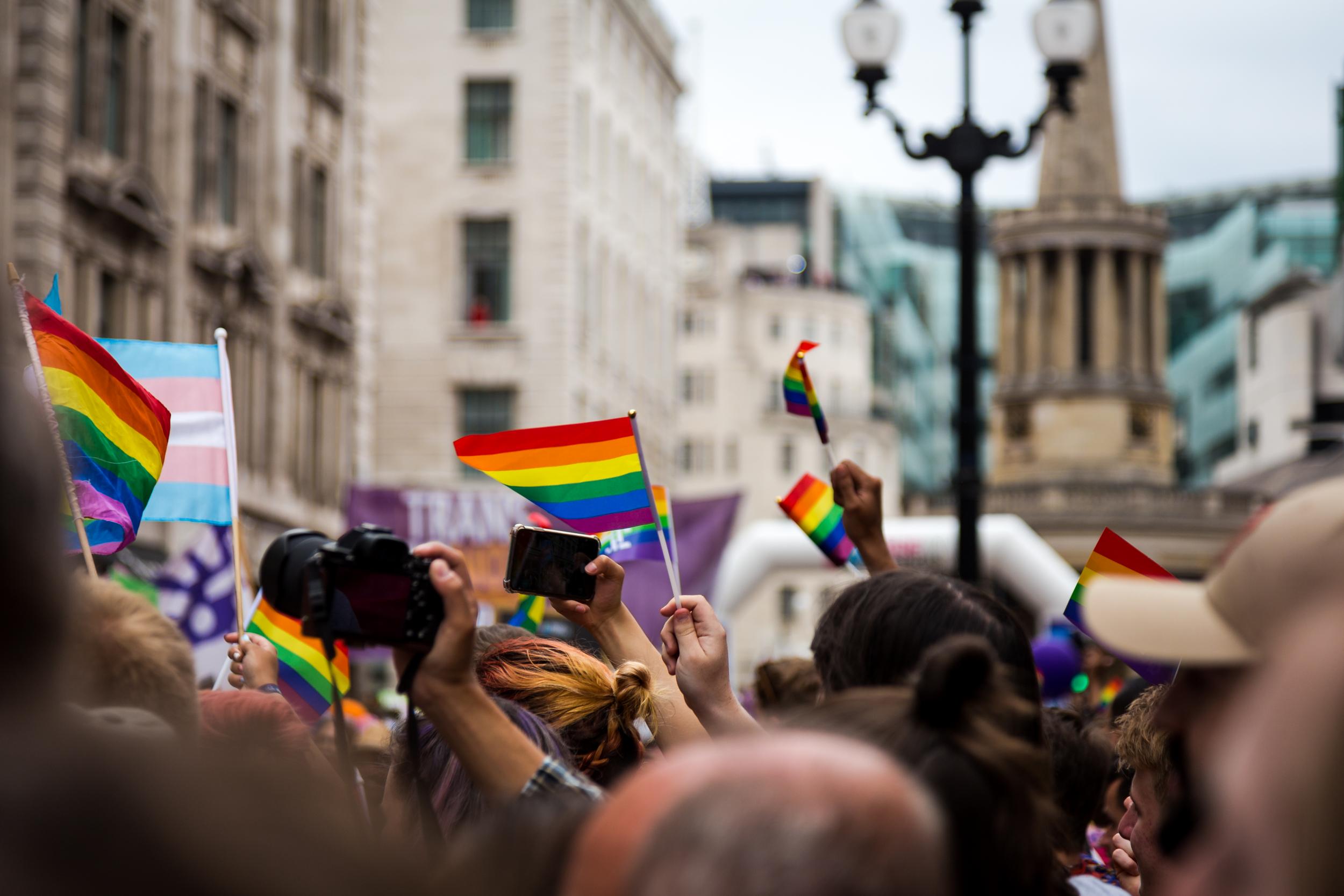Your support helps us to tell the story
From reproductive rights to climate change to Big Tech, The Independent is on the ground when the story is developing. Whether it's investigating the financials of Elon Musk's pro-Trump PAC or producing our latest documentary, 'The A Word', which shines a light on the American women fighting for reproductive rights, we know how important it is to parse out the facts from the messaging.
At such a critical moment in US history, we need reporters on the ground. Your donation allows us to keep sending journalists to speak to both sides of the story.
The Independent is trusted by Americans across the entire political spectrum. And unlike many other quality news outlets, we choose not to lock Americans out of our reporting and analysis with paywalls. We believe quality journalism should be available to everyone, paid for by those who can afford it.
Your support makes all the difference.A large majority of the British public support transgender people having the right to “self-identify” and choose their own gender, a new poll has found.
The survey shows that women are particularly supportive of trans rights, with 57 per cent in favour and just 21 opposed, according to the survey conducted by YouGov.
The findings come after Boris Johnson reportedly decided to shelve planned reforms to the Gender Recognition Act that would have made the legal process of changing one’s gender less onerous.
Overall 50 per cent of the British public support self-identification with 27 per cent saying they are opposed and 23 per cent saying they don’t know.
Support for self-ID is positive across all genders, social classes, regions of the UK, and age groups – though younger people support it more strongly.
The minority opposed to the idea is larger among older age groups: 18-24 year olds 64 per cent support self-ID with just 14 per cent opposed. 57 per cent of 25-49 year-olds are in favour and 45 per cent of 50-64 year olds. The 65+ age group narrowly supports self-ID by 35 per cent to 34 per cent.
The strongest predictor of being opposed to trans rights is being a Tory, with 42 per cent of 2019 Conservative voters saying they oppose self-ID and 35 per cent in favour. The only other demographic in the breakdown provided by YouGov opposed is Leave voters, who narrowly oppose self-ID by 39 to 41 per cent.
Labour voters are 70 per cent in favour and 13 per cent oppose and Lib Dems at 63 per cent in favour and 16 per cent opposed.
Despite claims from some commentators that the issue is a solely a concern of the middle class, opposition is identical across NRS social grades, with 27 per cent opposed in both ABC1 and C2DE categories – categories sometimes framed as middle class and working class respectively.
The poll, conducted at the end of June 2020, was commissioned by the Pink News website and asked: “Do you think a person should or should not be able to self-identify as a gender different to the one they were born in?”
It showed a small shift in public support away from an identical question asked in 2019, which preceded a backlash against the plans to reform the Gender Recognition Act in the British media. In that poll, 56 per cent supported self-ID and 23 per cent opposed it.
As former prime minister Theresa May moved to reform the Gender Recognition Act to allow people to identify their own gender rather than seek a doctor’s consent, but 18 months after the government’s consultation closed nothing has been formally announced. Ms May described the current process as “intrusive” and “bureaucratic”.
In June a coalition of the LGBT+ groups from the Conservatives, Labour, Liberal Democrats, Greens, Scottish National Party, Plaid Cymru and the Alliance Party of Northern Ireland said they “stand united” in their firm support for the transgender community.
The groups wrote to equalities minister Liz Truss and said the delays had led to “continuous scaremongering and vilification in the media”.

Join our commenting forum
Join thought-provoking conversations, follow other Independent readers and see their replies
Comments